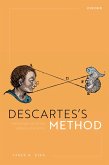'What can you say to a man who tells you he prefers obeying God rather than men, and that as a result he's certain he'll go to heaven if he cuts your throat?' Voltaire's Pocket Philosophical Dictionary, first published in 1764, is a major work of the European Enlightenment. It is also a highly entertaining book: this is no 'dictionary' in the ordinary sense, nor does it treat 'philosophy' in the modern meaning of the term. It consists of a sequence of short essays or articles, arranged in alphabetical order, and covering everything from Apocalypse and Atheism to Tolerance and Tyranny. The unifying thread of these articles is Voltaire's critique of established religion: ridicule of established dogma, attacks on superstition, and pleas for toleration. Witty and ironic, this is very much a work of combat, part of Voltaire's high-profile political struggle in the 1760s to defend the victims of religious and political intolerance. This new translation is based on the definitive French text, and reprints the edition that provoked widespread controversy and condemnation. In his Introduction Nicholas Cronk considers the work's continuing relevance to modern debates about religious intolerance and its consequences. ABOUT THE SERIES: For over 100 years Oxford World's Classics has made available the widest range of literature from around the globe. Each affordable volume reflects Oxford's commitment to scholarship, providing the most accurate text plus a wealth of other valuable features, including expert introductions by leading authorities, helpful notes to clarify the text, up-to-date bibliographies for further study, and much more.
Dieser Download kann aus rechtlichen Gründen nur mit Rechnungsadresse in A, B, BG, CY, CZ, D, DK, EW, E, FIN, F, GR, HR, H, IRL, I, LT, L, LR, M, NL, PL, P, R, S, SLO, SK ausgeliefert werden.









